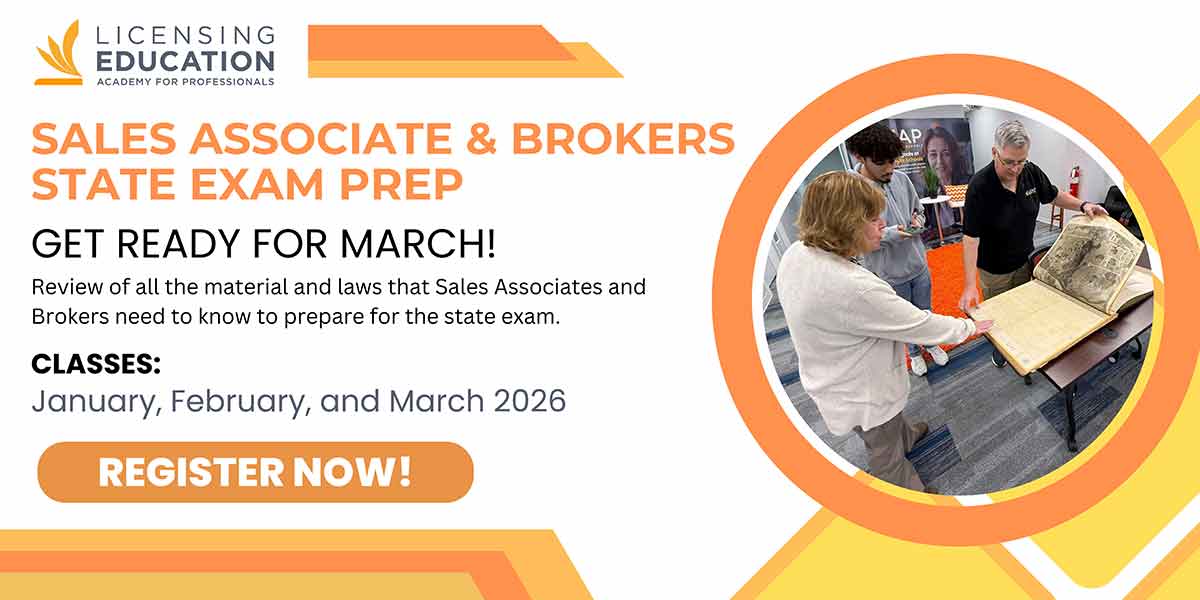Embarking on a career in real estate is an exciting journey filled with opportunities and choices. One of the fundamental decisions aspiring real estate professionals must make is whether to pursue formal real estate pre-licensing education or opt for self-study.
In this comprehensive guide, we’ll explore the pros and cons of each path, helping you make an informed choice that aligns with your goals and aspirations.
“Education is the key to unlock the golden door of freedom.” – George Washington Carver
The Pros and Cons of Real Estate Pre-Licensing
Real estate pre-licensing programs offer structured and comprehensive education, making them a popular choice among those seeking a solid foundation in the industry.
Pros of Real Estate Pre-Licensing
-
Structured Curriculum
- One of the key advantages of formal pre-licensing education is the structured curriculum. It covers all the essential topics required for licensure, ensuring you have a comprehensive understanding of the field.
-
Expert Instructors
- Pre-licensing programs are typically led by experienced instructors who can provide insights and guidance, helping you navigate the complex world of real estate.
-
Networking Opportunities
- In a classroom setting, you have the chance to network with both instructors and fellow students, establishing valuable connections for your future career.
Cons of Real Estate Pre-Licensing
-
Time-Consuming
- Structured programs demand a significant time commitment. This can be a drawback for individuals with busy schedules or those seeking a more flexible learning approach.
-
Financial Investment
- Enrolling in pre-licensing courses typically requires a financial investment. This can be a barrier for individuals on a tight budget.
-
The Pros and Cons of Real Estate Self-Study
- Self-study is an alternative approach that offers flexibility and autonomy to learners, but it comes with its own set of pros and cons.
Pros of Real Estate Self-Study
-
Flexibility
- Self-study allows you to create your own schedule and learn at your own pace. This is ideal for individuals with busy lives or those who prefer a more autonomous learning style.
-
Cost-Effective
- Self-study materials, including textbooks and online resources, are often more budget-friendly compared to formal programs.
Cons of Real Estate Self-Study
-
Lack of Structure
- The absence of a structured curriculum can make it challenging to ensure you’re covering all necessary topics. It also requires strong self-discipline.
-
Limited Networking
- Self-study doesn’t offer the same networking opportunities as formal programs, which can be a disadvantage for those seeking industry connections.
Making the Right Choice with LEAP
LEAP, the Licensing Education Academy for Professionals, is your trusted partner in the pursuit of a real estate career. Our range of pre-licensing and self-study options allows you to tailor your education to your specific needs and preferences.
LEAP Pre-Licensing Programs
Our pre-licensing programs offer a structured curriculum, expert instructors, and networking opportunities, ensuring you receive a comprehensive education.
LEAP Self-Study Resources
For those seeking flexibility, our self-study resources provide cost-effective materials and the freedom to learn on your own terms.
Your Journey Begins with the Right Choice
Whether you choose a formal pre-licensing program or opt for self-study, your path to a successful real estate career starts with the right choice.
LEAP is here to guide you, offering the resources and support you need to thrive in the ever-evolving world of real estate. Make the choice that aligns with your goals, and let your real estate journey begin.






